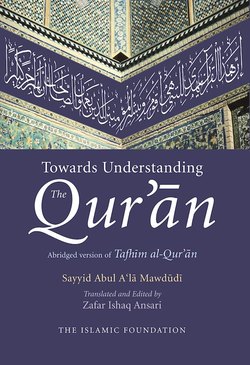Читать книгу Towards Understanding the Qur'an - Sayyid Abul A'la Mawdudi - Страница 37
На сайте Литреса книга снята с продажи.
ОглавлениеTowards Understanding the Qur’an
was revealed merely for the benefit of students of history and sociology!
[ VI ]
The present arrangement of the Qur’an is not the work of later generations, but was made by the Prophet under God’s direction. Whenever a surah was revealed, the Prophet summoned his scribes, to whom he carefully dictated its contents, and instructed them where to place it in relation to the other surahs. The Prophet followed obligatory the same order of surahs and verses when reciting during ritual Prayer as on other occasions, and his Companions followed the same practice in memorizing the Qur’an. It is therefore a historical fact that the collection of the Qur’an came to an end on the very day that its revelation ceased. The One who was responsible for its revelation was also the One who set its arrangement. The one whose heart was the receptacle of the Qur’an was also responsible for arranging its sequence. This was far too important and too delicate a matter for anyone else to dare to become involved in.
Since Prayers were obligatory for the Muslims from the very outset of the Prophet’s mission,5 and the recitation of the Qur’an was an obligatory part of those Prayers, Muslims were committing the Qur’an to memory while its revelation continued. Thus, as soon as a fragment of the Qur’an was revealed, it was memorized by some of the Companions. Hence the preservation of the Qur’an was not solely dependent on its verses being inscribed on palm leaves, pieces of bone, leather and scraps of parchment – the materials used by the Prophet’s scribes for writing down Qur’anic verses. Instead those verses came to be inscribed upon scores, then hundreds, then thousands, then hundreds of thousands of human hearts, soon after they had been revealed, so that no scope was left for any devil to alter so much as one word of them.
5 It should be noted that while the five daily Prayers were made obligatory several years after the Prophet was commissioned, Prayers were obligatory from the very outset; not a single moment elapsed when Prayers, as such, were not obligatory in Islam.
xxxvi
